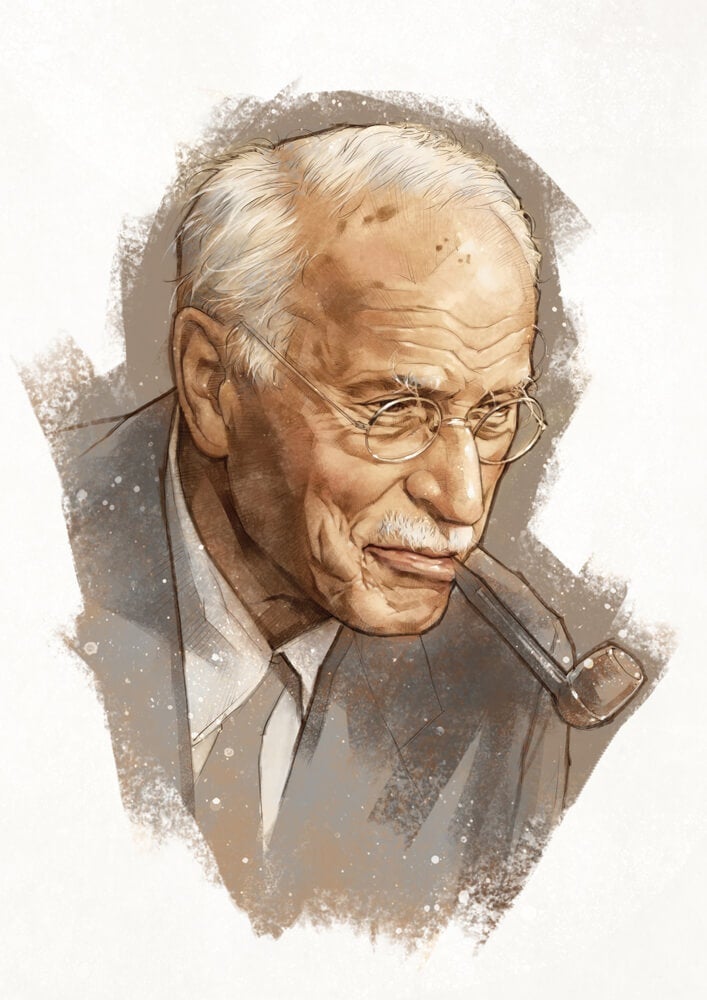INFP’s personality defines people as introverted, intuitive, sentimental and insightful.
According to Carl Jung, these are profiles with great sensitivity, creativity and independence and that, in addition, have a high idealism, are close, compassionate people who define themselves as healers because they care about their own personal growth and at the same time promote the growth of others.
- When we read Carl Jung’s book Psychological Types and his personality theories.
- We appreciate a breakthrough in his time.
- At a time when psychology was still a teenager.
- The celebrated Swiss psychiatrist wanted to lay the foundation for a personality model based on a unique and revolutionary approach.
He introduced the concepts of introversion and extraversion. However, he established these dimensions as the result of something continuous, to which other subjective and perceptual phenomena can be mixed at the same time.
On this basis, we understand that no one is correct? Or “extroveri”, but that we are all in a spectrum in which we define more dynamics, entities and traits.
In this way, his personality theory, defined in eight typologies, would be the first step towards, decades later, the well-known classification of Myers-Briggs (1944), in which up to 16 subtypes were defined.
Thus, while these models are not as popular as others based on better-known instruments, such as Raymond Cattell’s 16 PF, it should be noted that, for the field of personal growth, it still has a great interest.
David J. Pittenger’s studies from Marshall University in Virginia, for example, indicate that it is a very suitable tool to promote self-reflection, so knowing each of his typologies is never too much.
“The privilege of a lifetime is to become who you really are. “Carl Jung?
The INFP personality, according to the Myers-Briggs model, is the result of the interaction of four fundamental dimensions:
This type of profile therefore responds to the acronym INFP (Introverted-intuitive-feeling-perceptive). Thus, the creators of this measurement tool, Katharine Briggs and Isabel Meyer, defined it as the “mediator” profile.
They are idealistic people, strongly involved in the generation of happiness, promoting their own growth and that of others.
So, let’s look at these defining characteristics
Idealists of mind and heart do not exist too much, so the authors of this scale indicated that this sixth typology within the Myers-Briggs model defines only 4% of the population.
His sense of ethics is very high. They know very clearly what is right and what is wrong, and will not hesitate to always be true to their beliefs.
However, these are not people who “exaggerate. ” They show respect, compassion and care for others through simple but always profound acts. They generate good through a quiet and absolute discretion.
You could say that the personality of INFP usually draws up a life plan of the heart.
They are sensitive people, but confident, they are introverted and reserved men and women, but they never undecided when it comes to making decisions, they do so by intuition, they trust in their inner voice and, moreover, they do so because they are idealistic, because they believe that the world, in its purest essence, is noble and good.
INFP’s personality is generally geared towards art, writing, photography, as well as any artistic expression in which the person can represent their emotions, their ideas and a confident and optimistic inner world.
They are also very sensitive profiles with everything around them, they appreciate the details, the sensations, they know how to connect with people in a very simple and at the same time magical way, they are not good speakers, but they are very good to listen, support and be there when people need them.
On the other hand, it must be said that they like to act instinctively. They don’t have to plan ahead, keep schedules, plan tasks, keep their belongings and items in order. Very often, these people have houses with very messy closets. That’s because they prioritize other things.
In conclusion, as we have seen, the personality of inFP is defined above all by its confident idealism, its kindness and its artistic interests, so one of the phenomena that these people suffer the most is disappointment. world and those who live there make them suffer harsh disappointments.
Carl Jung’s model of psychological types, and in particular the Myers-Briggs indicator, are resources that are within our reach and at least very curious.

